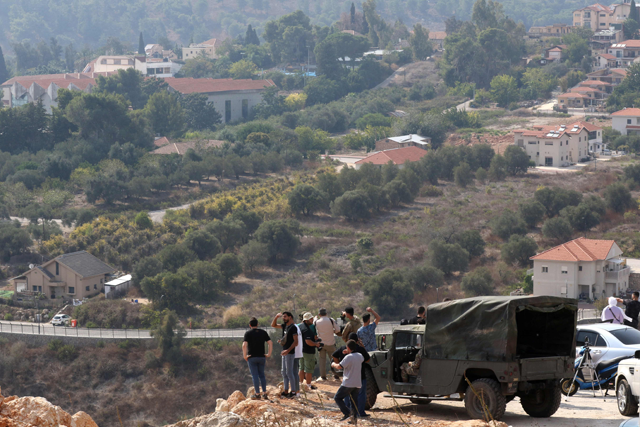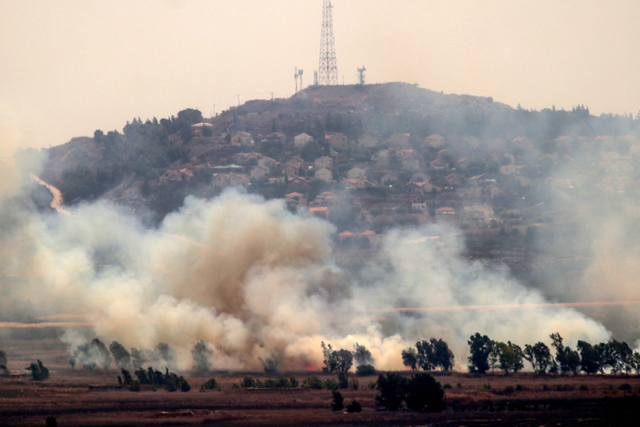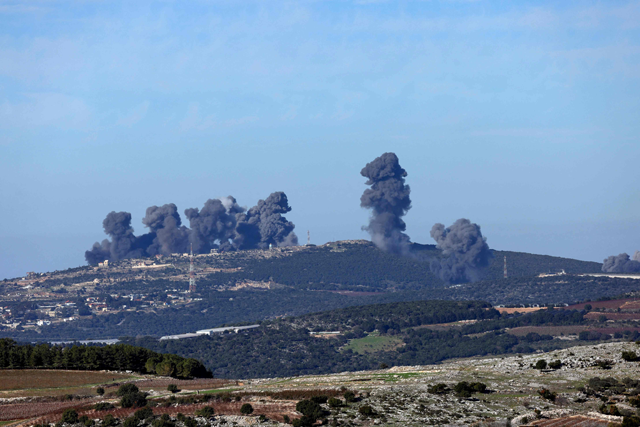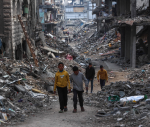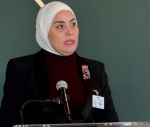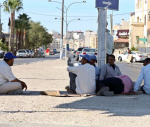You are here
Lebanese on Israel border say they don’t fear escalation
By AFP - Oct 08,2023 - Last updated at Oct 08,2023
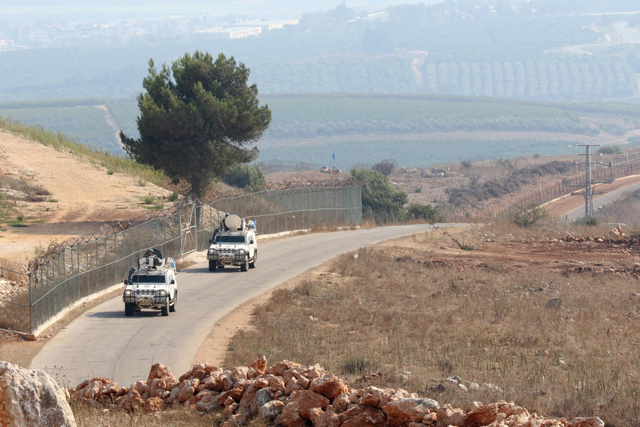
Peacekeepers of the United Nations Interim Force in Lebanon (UNIFIL) patrol the southern Lebanese plain of Khiam bordering the Israeli town of Metula, on Sunday (AFP photo)
KFARSHUBA, Lebanon — Smoking shisha on a balcony overlooking where Hizbollah and Israel exchanged fire only hours before, Lebanese villager Abu Rami brushes it off, saying he is now used to such confrontations.
In an attack it said had been carried out “in solidarity” with Hamas, which launched a surprise assault on Israel the day before, Hizbollah fired on Israeli positions in the contested Shebaa Farms border area.
Israel said it retaliated and warned the Iran-backed Shiite movement against getting involved in the fight on its southern flank with the Palestinian Islamist group that rules the Gaza Strip.
Despite the escalation, people in the village of Kfarshuba, which overlooks Shebaa Farms, said they were not afraid of war and that they supported Hizbollah and Palestinian militants.
“We are no longer afraid; we taught our children that this a country of resistance,” said Abu Rami from the village of Kfarshuba.
“Our lives at the border are unstable... we’re used to this,” said the man in his 40s who did not give his full name.
The tough conditions in southern Lebanon, which endured the 1975-1990 civil war and decades of Israeli occupation followed by intermittent unrest — has forced many people to leave Kfarshuba.
Palestinian militants had taken up base in the border areas in the 1970s, frequently exchanging fire with Israel, which had occupied the village for 22 years.
In 2006, Hizbollah and Israel fought a 34-day war that left more than 1,200 dead in Lebanon, mostly civilians, and 160 in Israel, mostly soldiers.
The two countries remain technically at war.
Speaking at a Hizbollah rally in support of Hamas’ offensive, senior official Hashem Safieddine said the group’s strikes were “a message” to Israel that “it’s our right and duty to target the enemy so long as it occupies our land”.
‘Lived through
all the wars’
With his back turned to the green hills that Hizbollah targeted earlier in the morning, Abu Rami said the Lebanese villagers backed the Palestinians.
“We support Palestine... and we sympathise with the resistance [Hizbollah] because we live on the border,” said the municipality worker.
“We are not afraid of anything because we have no infrastructure, no electricity, no food, nothing,” he said.
Lebanon has been battered by four years of gruelling economic crisis, which the World Bank said was one of the worst in recent world history.
Its currency, the pound, has lost more than 95 per cent of its value against the US dollar and power cuts lasting longer than 20 hours have become common, as cash-strapped state institutions fall in disrepair.
Lebanon’s National News Agency said a baby and another child were injured by flying shards of glass caused by the Israel strikes on Sunday.
Ismail Abdel Aal, a former Lebanese soldier, said people were carrying on with their lives in Kfarshuba despite the violence.
“Life in the village is normal. We are not scared,” the retiree now in his 70s told AFP while taking a stroll outside.
“We have lived through all the wars here in Kfarshuba,” he added.
Related Articles
BEIRUT — Lebanon's Hizbollah and Israel said they traded cross-border fire on Sunday, as Israel fought the Shiite movement's ally Hamas on i
BEIRUT, Lebanon — Lebanon's health ministry said three emergency personnel were killed on Saturday and two others wounded in an Israeli atta
BEIRUT — The Israeli forces dropped leaflets on parts of south Lebanon on Friday for the first time since the Israeli war on Gaza began, war


